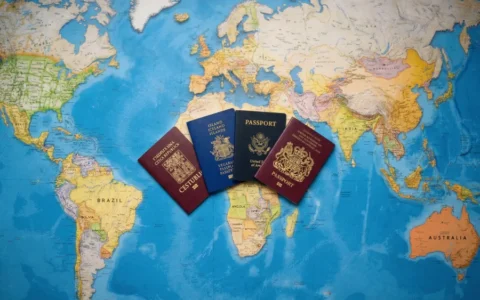In a significant policy reversal, the U.S. federal government has announced it will restore the immigration records of hundreds, potentially thousands, of international students whose legal status was jeopardized after their records were abruptly terminated in recent weeks.
The affected records are part of the Student and Exchange Visitor Information System (SEVIS), a federal database managed by Immigration and Customs Enforcement (ICE) to track international students’ compliance with visa requirements while in the U.S. SEVIS logs students’ academic status, disciplinary history, and any criminal charges, and plays a crucial role in maintaining their lawful presence.
Sudden Terminations Spark Legal Chaos
ICE had recently begun terminating SEVIS records for thousands of international students, citing disciplinary incidents uncovered through background checks, many of which were minor, according to immigration attorneys. These terminations triggered a legal crisis, as students without an active SEVIS record cannot easily extend or adjust their visas and may be forced to leave the country.
“The terminations blindsided students and attorneys alike,” said Brian Green, an attorney representing one affected student at American University whose SEVIS record was cancelled after an arrest that resulted in no charges. “Without SEVIS, their future in the U.S. was immediately at risk.”
The decision led to nearly 100 federal lawsuits being filed across the country by students challenging the government’s actions. In response, multiple judges issued temporary orders directing ICE to restore SEVIS records for those plaintiffs, further pressuring the federal government to revise its approach.
Government Announces Policy Shift
During a court hearing in Washington, D.C., on Friday, a Department of Justice attorney announced the reversal: students whose SEVIS records had been terminated would now have those records reactivated, at least temporarily. The move is intended to hold off further legal action while a formal policy is developed.
According to a written statement provided by Green and attributed to government attorney Joseph Carilli, SEVIS records “for plaintiff(s) in this case (and other similarly situated plaintiffs) will remain Active or shall be re-activated.”
While the statement is a relief to many students, it remains unclear whether the government plans to restore all terminated records or only those belonging to students who have taken legal action.
Green said immigration lawyers nationwide estimate that around 5,000 students were affected by the terminations in recent weeks. Many are now waiting to see whether the reversal will be applied broadly or on a case-by-case basis.
Broader Crackdown on International Students
The mass SEVIS terminations were just one element of a broader crackdown on noncitizens under the Trump administration, affecting both legal and undocumented immigrants. Secretary of State Marco Rubio has also confirmed the revocation of hundreds of student visas, many reportedly targeting those who participated in pro-Palestinian protests on U.S. campuses in the past year.
These actions have raised alarms among advocates, legal experts, and universities concerned about academic freedom, due process, and the well-being of international students. For students already under significant academic and immigration pressures, the sudden SEVIS terminations created a wave of confusion and fear.
Legal and Policy Uncertainty Ahead
As of now, the Departments of Justice and Homeland Security have not publicly commented on the policy reversal or outlined how the new formal policy for SEVIS revocations will be structured.
Attorneys say the issue underscores the need for clear and consistent federal immigration policies, especially when they affect students who are otherwise in good standing or who face minor allegations that don’t result in legal consequences.
For now, the government’s reversal offers temporary relief but leaves unresolved questions about fairness, due process, and the long-term treatment of international students in the U.S.
“This is a sigh of relief for thousands,” Green said, “but it’s only the first step. The damage to trust between international students and the U.S. immigration system is already done.”








